World Cup 2018 stadiums: A guide to the venues of this summer's tournament
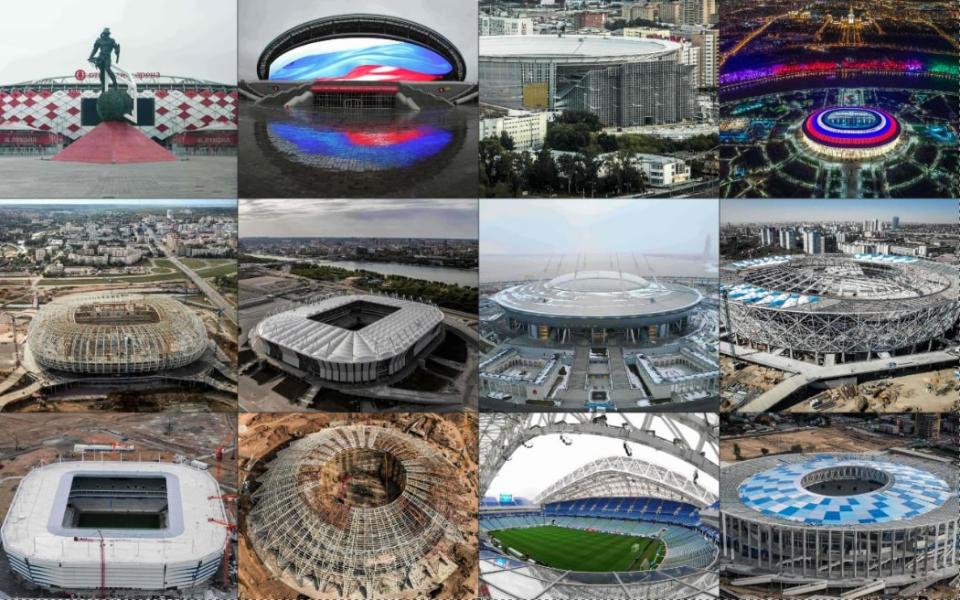
After much consternation about the cost and construction of Russia's 12 World Cup stadia, this summer's World Cup venues are complete. Here is a comprehensive lowdown on the grounds that will host the most prestigious event in world football.
Kazan Arena
Capacity: 45,379
A familiar destination for fans of Champions League and Europa League clubs, Kazan was named the 'sports capital of Russia in 2009. The City will host four group stage matches, one last-16 tie and a quarter-final. Designed by the architects of Wembley Stadium and the Emirates, it's star attraction is the in-ground high definition screen - the biggest of it's type in the world. Stands look nice and steep and the fans are reasonably close to the pitch by international tournament standards - not a running track in sight.
The ground is a bit outside of the city centre, so fans might be relying on taxis to get there. We're sure the local drivers won't exploit the demand to charge extortionate fares...

Ekaterinburg Arena
Capacity: 35,696
A thousand miles from Moscow and just south of the Ural mountains, this stadium was redeveloped especially for this summer's World Cup. The design is very artsy, but the temporary nature of the unsheltered stands behind each goal will not be to everyone's taste - they resemble the away end at Gillingham's Priestfield. One of the smaller capacities in the tournament and will not be used beyond the group stage.
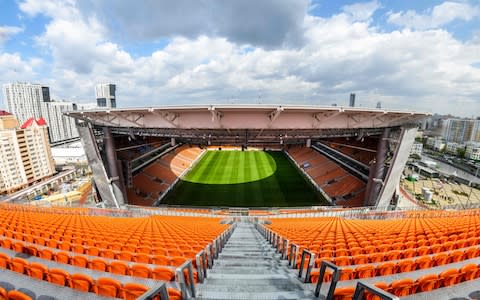
Fisht Stadium
Capacity: 47,659
Logistics will not be an issue down in Sochi, a city that has previously hosted the Winter Olympics. It is however, something of a footballing backwater with the city's only professional tier languishing in the lower divisions. The stadium's roof was removed to meet Fifa regulations, and the sweeping stands on either side of the pitch are in contrast to the smaller structures behind each goal. It bears resemblance to the Aviva Stadium in Dublin. It is 18 miles from the city centre, so fans will have to base themselves at one of the fan parks near the stadium. And only have the one pint, of course. Will host three group stage matches, one last-16 tie and a quarter-final.
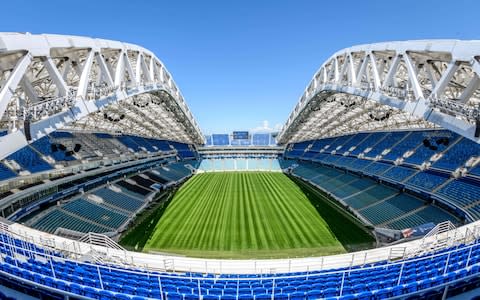
Kaliningrad Stadium
Capacity: 35,212
The westernmost host city in the tournament, Kaliningrad is located close to the border with Lithuania and Poland. The brand spanking new ground will not be used past the group stage, and has seen plenty of difficulties during its constructions, mainly because of the marshy land it is built on. The riverside location is picturesque, on an island outside of the city centre called Oktyabrsky Island. The design was inspired by Munich's Allianz Arena.
Spartak Stadium
Capacity: 45,360
Built for both for the tournament and as a permanent home for Spartak Moscow. That ensures the ground does not have an entirely soulless feel of your anonymous summer tournament venue, with fans close to the action in steep stands. The statue of gladiator Spartacus is likely to prove a popular picture sport for fans.
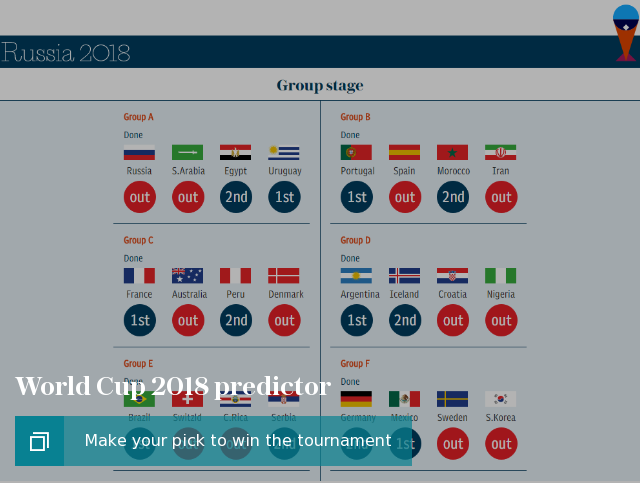
Samara Arena
Capacity: 44,807
Samara was once home of the Soviet space programme and this highly unusual stadium certainly looks extra-terrestrial. Critics of Russia's planning and the tournament's cost to the country frequently point to this venue, which has continuously run behind schedule. The transport links are also untested so give yourself plenty of time to get there if you are lucky enough to have a ticket.
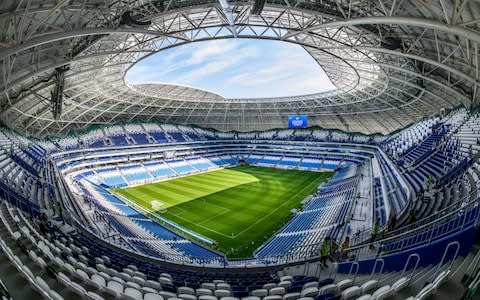
Mordovia Arena
Capacity: 44,442
A meat and potatoes tournament stadium - what you see is what you get. Building work is expected to be complete early next year and the ground will only host group stage matches.
Volgograd Arena
Capacity: 45,568
Manchester United lost a Uefa Cup tie here in 1995, and what was once a faceless bowl has been restored into a vibrant modern venue. Steel girders have replaced slabs of concrete, allowing natural light onto the pitch.

 Yahoo Sport
Yahoo Sport 




































